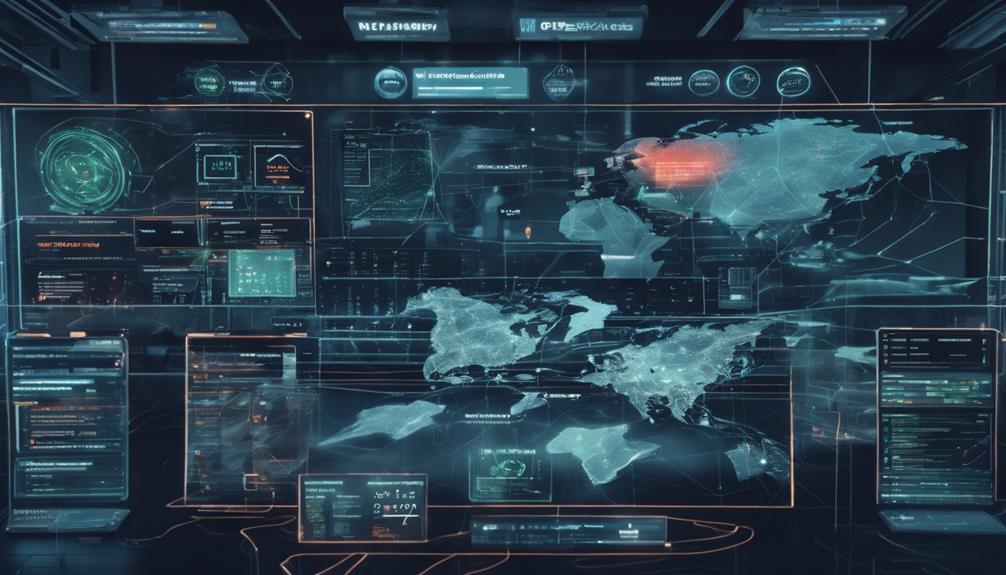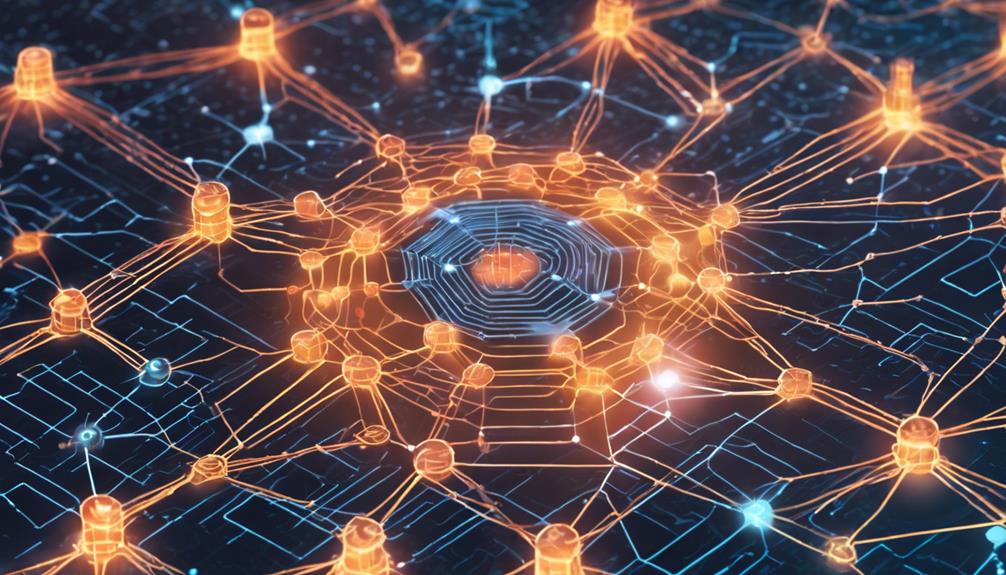AI strengthens cybersecurity defenses with rapid threat detection and predictive analysis. Yet, vulnerabilities like adversarial attacks and bias challenge its effectiveness. Human oversight remains essential for addressing critical gaps. Data privacy concerns and transparency issues require meticulous attention. Reliable AI integration demands continuous monitoring, data quality improvement, and ethical decision-making. By balancing AI's strengths with human expertise, organizations can enhance security protocols effectively. Understanding these limitations is important for bolstering cybersecurity resilience. Discover how strategic AI implementation and robust security measures can lead to thorough defense strategies.
Key Takeaways
- AI in cybersecurity is not foolproof; it faces adversarial attacks and biases.
- Human intervention is essential to address critical vulnerabilities AI may miss.
- AI limitations in context understanding hinder its effectiveness.
- Transparency issues like false positives/negatives challenge AI reliability.
- Continuous monitoring and AI governance enhance cybersecurity AI systems.
AI in Cybersecurity Overview
Artificial Intelligence (AI) plays a pivotal role in bolstering cybersecurity measures by employing advanced technologies for threat detection and response. AI tools have proven to be instrumental in fortifying defenses against cyber threats by leveraging machine learning and deep learning models to detect anomalies, respond to incidents, and enhance threat intelligence.
However, it is important to acknowledge the limits of AI in cybersecurity. While AI enhances the efficiency of identifying vulnerabilities, automating threat detection, and prioritizing risks, it is not immune to exploitation by malicious actors. These bad actors utilize generative AI technology to create sophisticated malware and precise phishing schemes, leading to a surge in cyber attacks.
Despite the proactive investments by 82% of IT decision-makers in AI-driven cybersecurity solutions, there remains a constant battle to stay ahead of evolving threats. Understanding the capabilities and constraints of AI in cybersecurity is essential for developing thorough defense strategies that can adapt to the ever-changing threat landscape.
Advantages of AI in Threat Detection
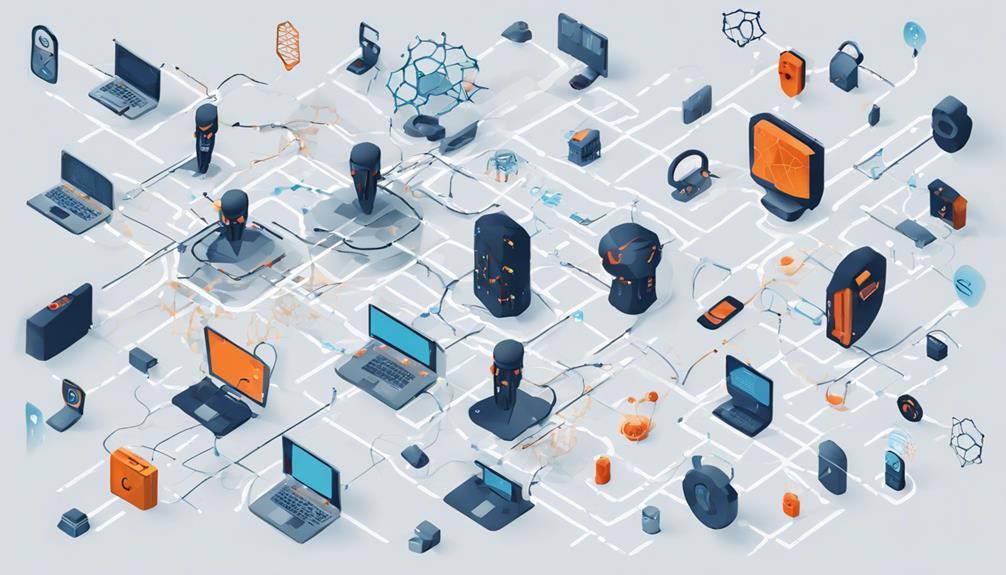
The utilization of AI technology in threat detection presents significant advantages in bolstering cybersecurity defenses through rapid data analysis and predictive intelligence capabilities.
AI-based cybersecurity systems leverage machine learning algorithms to swiftly sift through vast amounts of data in real-time, identifying patterns and anomalies that could signal potential cyber threats. By offering predictive intelligence, these systems empower organizations to proactively address security risks before they escalate.
Automated threat detection processes not only improve incident response times but also minimize the impact of security breaches. Additionally, AI enhances access control measures by implementing biometric authentication, adding an extra layer of security.
Combining AI's analytical prowess with human expertise in cybersecurity creates a formidable defense against evolving cyber threats. The synergy between automated threat detection and human oversight ensures a holistic approach to cybersecurity that is agile and efficient in safeguarding sensitive data and systems.
Risks of AI in Cyber Defense

AI implementation in cybersecurity introduces inherent vulnerabilities that organizations must carefully consider in their defense strategies. One significant risk is adversarial attacks, where cybercriminals exploit weaknesses in AI algorithms to bypass security measures. This manipulation can lead to breaches and data compromise, highlighting the importance of robust AI defenses.
Additionally, the potential for AI bias poses a serious threat, as inaccuracies in threat assessments and decision-making can leave systems exposed to sophisticated cyber threats. Despite the advancements in AI technology, its limitations in comprehending context and intent can hinder its effectiveness in defending against evolving attack techniques.
Organizations must be cautious not to solely rely on AI for cyber defense, as this may create a false sense of security. Human intervention remains essential in identifying and addressing critical vulnerabilities that AI-powered systems might overlook.
Data Privacy Concerns
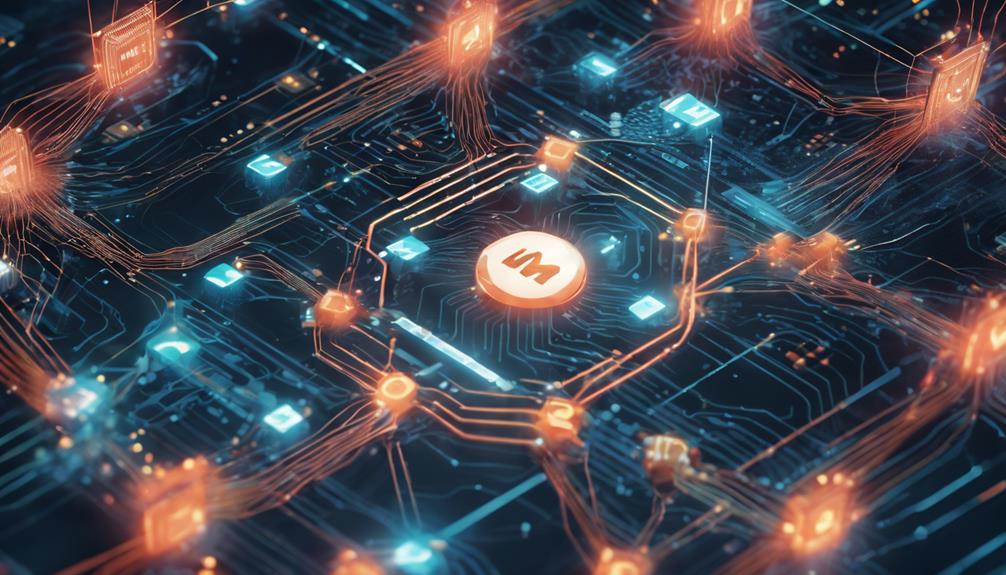
Given the increasing reliance on vast amounts of personal and sensitive data in cybersecurity technologies, particularly in the domain of data privacy, organizations face significant challenges in safeguarding information while leveraging AI systems effectively.
The integration of AI in cybersecurity raises data privacy concerns due to the substantial volumes of personal data required for best AI functionality. This reliance on data poses dilemmas related to privacy regulations and the protection of individuals' information.
To navigate these challenges, organizations must prioritize addressing data privacy issues to uphold customer trust and adhere to data protection laws. Implementing data anonymization techniques can serve as an important measure to mitigate data privacy risks in AI cybersecurity applications.
Striking a delicate balance between robust cybersecurity measures and respecting data privacy emerges as a key consideration for organizations adopting AI technologies within their security frameworks. By embracing these strategies, organizations can enhance their cybersecurity posture while upholding important data privacy standards.
Reliability and Accuracy Issues

Reliability and accuracy are paramount in the domain of AI cybersecurity, as they directly impact the effectiveness of threat detection mechanisms.
Issues such as false positives and negatives highlight the challenges faced by AI systems, necessitating a closer look at the limitations that can hinder their performance.
From algorithm bias to data privacy concerns, understanding these obstacles is vital in developing strategies to enhance the reliability and accuracy of AI technologies.
Reliability Concerns in AI
An inherent challenge in the domain of advanced cybersecurity technologies lies in addressing concerns surrounding the reliability and accuracy of threat detection systems powered by artificial intelligence. Reliability issues in AI are often rooted in the potential for false positives and negatives, impacting the effectiveness of AI algorithms in identifying and mitigating cybersecurity threats. Additionally, the lack of transparency in AI systems, particularly deep learning models, contributes to uncertainty and unreliability in threat detection processes. Training data quality and algorithm bias further exacerbate reliability challenges, hindering the dependability of AI-driven cybersecurity solutions. To visually represent the complexity of reliability concerns in AI, the table below highlights key factors contributing to reliability issues and their impact:
| Factor | Impact |
|---|---|
| False Positives | Decreased trust in AI systems |
| Training Data | Biased threat detection outcomes |
| Algorithm Bias | Compromised accuracy of predictions |
Addressing these reliability concerns is paramount to ensuring the trustworthiness and effectiveness of AI-powered cybersecurity solutions. Implementing robust governance frameworks, anonymizing data, and establishing reliability processes are essential steps in mitigating these challenges.
Accuracy Challenges Faced
Accuracy challenges faced by AI-powered cybersecurity systems are critical factors that impact the effectiveness of threat detection processes. Reliability issues, such as false positives and negatives, can arise due to the lack of transparency in AI models, particularly deep learning algorithms.
Algorithm bias stemming from training data can further hinder the accuracy of AI cybersecurity systems in identifying and responding to threats. The dynamic nature of cyber threats adds complexity, requiring continuous monitoring and adjustments to maintain accuracy levels.
To address these challenges, implementing AI governance practices, ensuring data anonymization, and establishing rigorous reliability processes within cybersecurity operations are essential. By acknowledging and actively working to overcome these accuracy hurdles, organizations can enhance the performance and trustworthiness of their AI cybersecurity systems, ultimately strengthening their defense mechanisms against evolving cyber threats.
Limitations of AI
Limitations in AI systems' reliability and accuracy present significant challenges within the domain of cybersecurity. While AI has shown promise in enhancing cybersecurity defenses, it cannot replace the need for human oversight and intervention.
One key issue is the potential for false positives and negatives, which can lead to erroneous threat assessments. Additionally, the lack of transparency in deep learning models further complicates the reliability of AI systems in cybersecurity.
Another critical factor is the reliance on training data and algorithms, which may introduce biases impacting the effectiveness of AI in identifying patterns and responding to threats. Furthermore, AI's struggle to understand context can result in inaccuracies in threat detection and decision-making processes.
To address these limitations, ongoing efforts are essential to improve the transparency, accountability, and bias mitigation strategies within AI systems. Understanding the limits of AI and actively working to enhance its reliability and accuracy are vital steps towards maximizing its potential in cybersecurity defenses.
Lack of Transparency Challenges
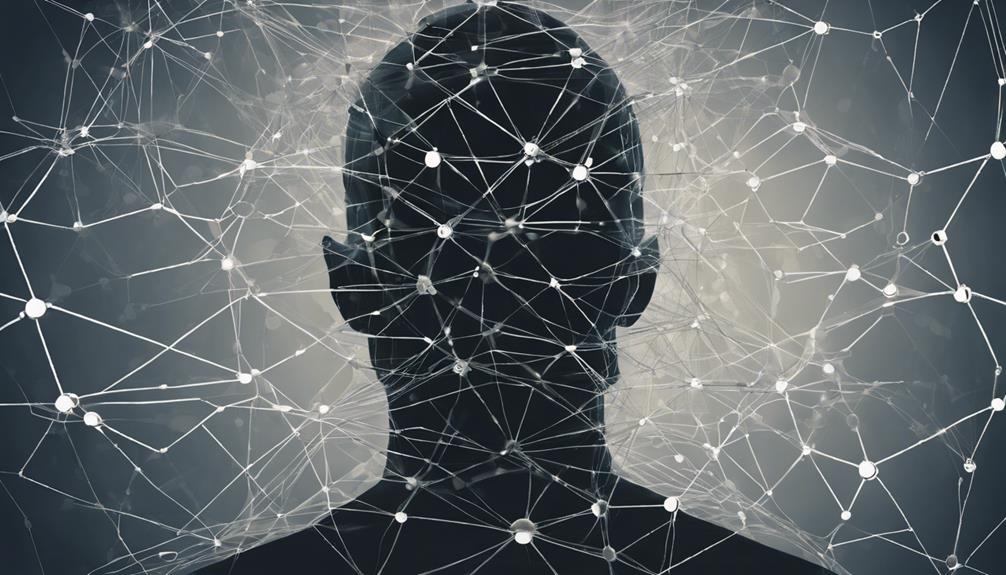
Understanding the lack of transparency in AI systems is paramount in addressing accountability concerns. By shedding light on how decisions are made, we can uncover biases and errors within algorithms, fostering trust in AI technologies.
Transparency not only bolsters reliability and accuracy but also guarantees ethical and responsible use of AI in cybersecurity.
Transparency in AI
The importance of transparency in AI models poses significant challenges to comprehending the decision-making processes behind automated systems. In the cybersecurity landscape, understanding AI is vital for ensuring the effectiveness and reliability of security measures.
Here are three key points highlighting the impact of transparency issues in AI models:
- Complex algorithms in AI systems often operate as black boxes, making it difficult to trace how decisions are reached.
- Limited visibility into AI processes can result in biases and inaccuracies going unnoticed, potentially leading to security vulnerabilities.
- Lack of transparency hinders explainability and ethical decision-making, raising concerns about the trustworthiness and accountability of AI-driven cybersecurity solutions.
To address these challenges, efforts must be made to enhance transparency in AI models, allowing for clearer insights into their inner workings and promoting more reliable and ethical cybersecurity practices.
Accountability Concerns
How do transparency challenges in AI systems contribute to accountability concerns within cybersecurity practices?
Lack of transparency in artificial intelligence (AI) systems creates obstacles in understanding how these technologies make decisions in security operations. This lack of insight hinders the ability to effectively oversee and hold AI systems accountable for their actions in safeguarding sensitive data and maintaining cybersecurity protocols.
Without transparency, it becomes arduous to identify biases, errors, or vulnerabilities that AI systems might exhibit during critical security tasks. Addressing these transparency gaps is paramount to ensuring that AI systems operate in alignment with security and ethical standards set by human cybersecurity professionals.
Trust and AI
Amid the intricate landscape of cybersecurity, the lack of transparency in AI systems poses significant challenges for fostering trust in digital defense mechanisms. Understanding the importance of AI in cybersecurity systems is essential for addressing the lack of transparency issues that impede trust.
Here are three key aspects to take into account in this scenario:
- AI cannot truly build trust without transparency: Without a clear view of how AI operates within cybersecurity systems, it is difficult for users to trust the decisions made by these systems.
- Lack of transparency hampers accountability: When the inner workings of AI algorithms remain opaque, verifying decisions and ensuring accountability become challenging tasks, impacting the overall trust in the systems.
- Transparency gaps hinder confidence in AI-driven solutions: Trust is a cornerstone of effective cybersecurity, and without transparent AI processes, building confidence in the reliability of these solutions becomes increasingly challenging.
Addressing transparency concerns is vital for enhancing trust and reliability in AI-powered cybersecurity defenses.
Bias in Training Data and Algorithms

Undoubtedly, bias in training data and algorithms poses a significant challenge to the ethical and accurate functioning of AI systems. When AI models are trained on biased data, the results can be skewed, leading to inaccurate predictions and unfair outcomes. This bias can originate from historical data, human biases present in the data collection process, or biased sampling methods.
Algorithms that learn from biased data can perpetuate discrimination and reinforce existing societal inequalities. Mitigating bias in training data and algorithms is essential to guarantee that AI systems make decisions fairly and ethically. By identifying and addressing biases during the training phase, organizations can work towards creating more equitable AI solutions.
Recognizing and rectifying bias in AI is not only vital for improving the accuracy of predictions but also for fostering trust in AI systems. Embracing strategies to mitigate bias is a key step towards promoting unbiased decision-making and advancing the responsible use of artificial intelligence.
Strategies for Successful AI Integration
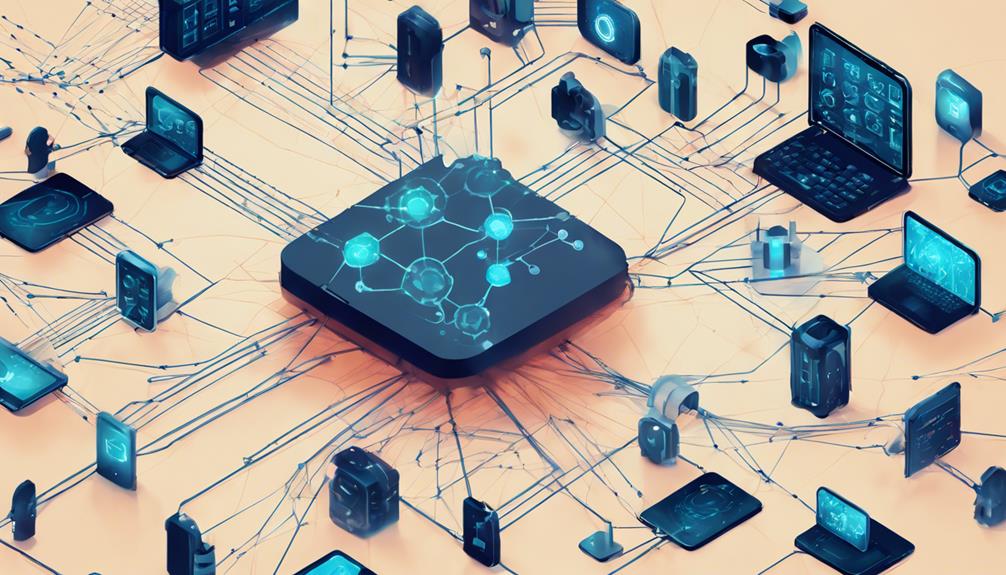
Addressing biases in training data and algorithms is fundamental for guaranteeing successful integration of AI in cybersecurity. Strategies focused on enhancing data quality and security measures play a pivotal role. To achieve this, consider the following strategies:
- Implement Generative AI techniques to augment existing data sets and generate synthetic data, enhancing the diversity and completeness of training data.
- Prioritize continuous monitoring and improvement of data quality to make certain AI models are trained on accurate and reliable information, reducing the risk of erroneous predictions.
- Leverage automation to detect and respond to cybersecurity threats in real-time, enabling rapid and effective mitigation of potential risks.
Building Strong Security Measures
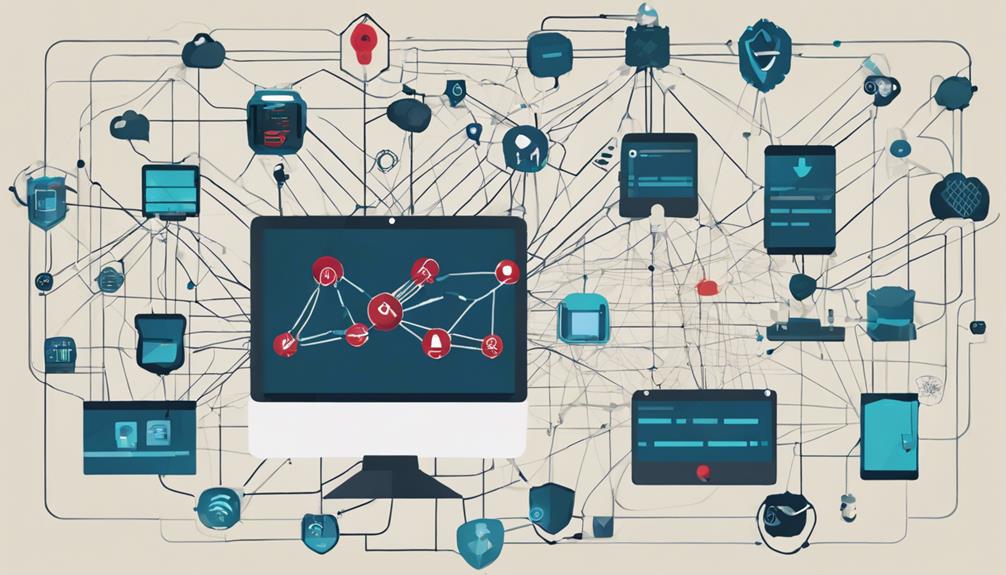
Effective implementation of strong security measures is essential in safeguarding organizations against cyber threats. By combining artificial intelligence (AI) technologies with the expertise of information security (infosec) professionals, robust security defenses can be established. While AI plays an important role in detecting and responding to threats, it is important to acknowledge its limitations and the need for human oversight.
Threat actors are constantly evolving, making it imperative for organizations to continuously update and monitor their cybersecurity AI systems. To build strong security measures, organizations should invest in AI tools that can analyze vast amounts of data in real-time to identify potential threats. Additionally, regular training and collaboration between AI systems and human analysts can lead to more effective threat detection and response strategies.
Frequently Asked Questions
Is Cyber Security AI Proof?
Cybersecurity AI faces challenges such as distributional shift in datasets, impacting tasks like network intrusion detection and malware classification. Data quality and recency play pivotal roles in AI performance, while recent data constraints limit training data availability.
Can You Tell Us About Some of the Limitations of AI Technology?
AI technology limitations include lack of genuine understanding, consciousness, and human-like cognition. It operates through pattern recognition and lacks real comprehension. Continuous monitoring and refining are essential for peak AI functionality. Safeguarding against data manipulation is important.
Are There Any Limitations in Cybersecurity?
Limitations in cybersecurity include AI's struggle with new threats, inaccuracies in decision-making, data privacy issues, algorithm bias, and lack of transparency. Replicating human intuition and understanding context poses challenges for AI systems.
What Is the Main Challenge of Using AI in Cybersecurity?
The main challenge of using AI in cybersecurity lies in detecting distributional shift in datasets, impacting AI effectiveness. Data quality, recency, and limited availability of training data hinder AI performance in tasks like network intrusion detection and malware classification.
Conclusion
To sum up, while AI technology has shown great promise in enhancing cybersecurity measures, it is not immune to limitations and risks. By understanding and addressing challenges such as data privacy concerns, reliability issues, lack of transparency, and bias in training data, organizations can better integrate AI into their defense strategies.
By implementing strong security measures and continually refining AI algorithms, we can work towards a more resilient and effective cybersecurity landscape.


